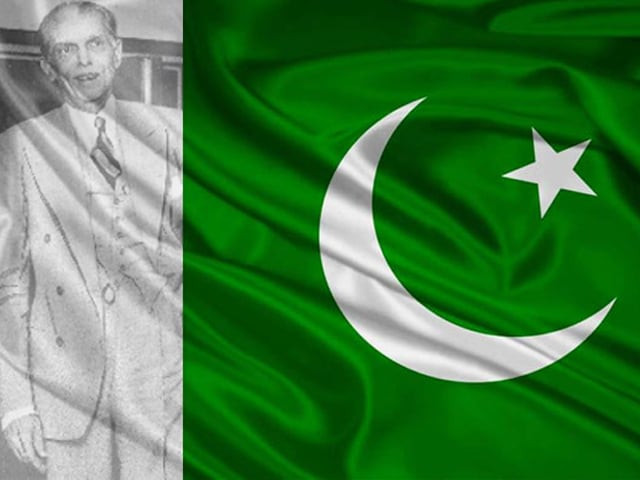The Pakistan we see today is not the Pakistan envisaged by the founders of this country. There were a lot of mishaps surrounding the birth of this country as it faced a pre-mature labour. Short-sightedness on the part of leaders of the Pakistan Movement coupled with the intrigue that arose by the parting Britishers resulted in a country that was in shambles as soon as it came into existence.
The very first grave challenge faced by Pakistan was the massive bloodshed that occurred on both sides of the border. Starting from the massacres of non-Muslims in Northern Punjab and Bengal in March 1947, till the brutal slaughter of Muslim refugees in the last months of 1947, sectarian violence affected the whole subcontinent.
Faiz Ahmed Faiz best summed up partition in the following words:
Ye daagh daagh ujaala,
Ye shab-gazeeda seher,
Wo intezar tha jis ka,
Ye wo seher to nahi.
(Such a tarnished beginning and shadow infested dusk; this is not what we were waiting for.)
Mr Jinnah, a twelver Shia himself, would be considered a minority today, in the state that he founded.
At the time of partition, 25% of the population was non-Muslim. This has reduced to a mere 2% since then. This relative decrease in number is chiefly due to the creation of Bangladesh but also due to mass exodus of non-Muslims who had to spend lives as second-rate citizens in their own country.
Arpit Parashar wrote in his article entitled ‘Half a country, half a life’ in Ink Magazine:
“Despite border tensions, migration, chiefly into India, has been a constant since partition. Hindus and Muslims from East Pakistan—then Bangladesh—fled to India to escape the atrocities at home. Rough government estimates suggest that 1o lakh Hindus came in after Partition, another 10 lakh in the 1950s, around 50 lakh in the 1960s. Around 15 lakh of the one crore who came to India in 1970-1971 stayed on. Since then, poverty and sectarian strife at home has led to the migration of about 50 lakh Bangladeshi Muslims to India since 1971.”
He also mentioned that,
“The Constitution of Pakistan upholds Islam as the state religion and allows other religions to co-exist but the ground realities are different. Hindus are termed kafir and their love for their home country is questioned at every level. The Chief Justice of the Lahore High Court Khwaja Muhammad Sharif is reported to have commented earlier this year that the Hindus were responsible for terrorism in Pakistan.”
I should point out that in Pakistan, not only non-Muslims, but also those Muslims who do not conform to the majority's interpretation of Islam are deemed as minorities.
In the infamous Munir Report of 1954, Justice Munir noted that none of the learned Islamic scholars representing their respective sects came to agree upon a single, universal definition of who was a Muslim (and who was not). This results in a situation where if we are Muslim by the standard of one sect's definition, we are considered kafir by the rest of the definitions.
The constant insecurity, disdain and persecution faced by our fellow non-Muslim Pakistanis for the last 65 years is contrary to the teachings of our religion and every ethical principle there is. Even Jogindar Nath Mandal, Pakistan's first law minister chosen by Mr Jinnah himself, had to leave the country in 1950 as a protest against maltreatment of Hindus in East Pakistan.
At the heart of this hatred of others lies the sense of self-righteousness that we have been raised on, and a hefty mixture of cognitive dissonance (difference in what we are told/taught and what the reality is). There exists cultural narcissism; the idea that we are the best nation ever but we have been suppressed by mythical enemies.
The Islamic revivalists of today, while condemning non-Muslims for their exploits against Muslims, forget that non-Muslims enjoyed comfortable lives under Muslim rulers from the time of the reign of Righteous Caliphs till the fall of the Ottoman empire.
I agree in principle with my hyper-nationalist brothers when they denounce the atrocities being committed in Kashmir, Palestine and Burma. I just wish they would speak a single word against Shia genocide, Baloch missing persons, target killing of Hazaras or events like Gojra, which occur in their own backyard.
Raising a voice about minorities is considered a 'liberal elite' hobby but it’s not the liberal elite who lynch innocent Christians, abduct Hindu girls or accuse minors of committing blasphemy.
Detractors point out that highlighting minority rights downplays 'real' issues like the power crisis, unemployment, stagflation, education and health disasters. I partially agree with this criticism, but to quote Saroop Ijaz,
“No issue is more real than murder or witch-hunt. All loss of innocent life is to be condoled, yet not all funerals require the same mourning or outrage.”
It must be mentioned that the so-called 'real issues' have created a frustration that has frequently been outpoured at the cost of minorities.
Someone tweeted the other day:
When Mr Jinnah said, “You are free to go to your temples, you are free to go to your churches”, he should’ve added, “at your own risk”.
The space for minorities, and people, who speak up about minority rights is closing down at an alarming pace. For the Christians and Hindus who couldn't afford going to a new country in 1947, or the Shias and Ahmadis who immigrated to a new land, the road ahead is a bleak one. This is a dangerous situation because the thirst for blood of minorities will eventually lead to infighting and civil war.
Excommunicating sects one by one will end in disaster. Cyril Almeida writes:
“Pakistan's dirty little secret isn't its treatment of non-Muslims, Shias or other sundry groups who find themselves in the cross-hairs of the rabid and the religious. Pakistan's dirty little secret is that everyone is a minority.”
Read more by Abdul here or follow him on Twitter @abdulmajeedabid



COMMENTS
Comments are moderated and generally will be posted if they are on-topic and not abusive.
For more information, please see our Comments FAQ